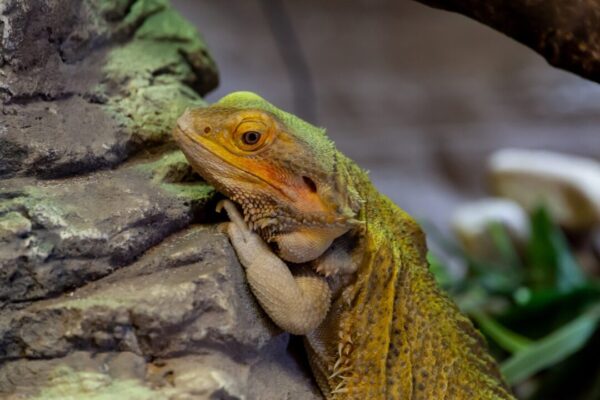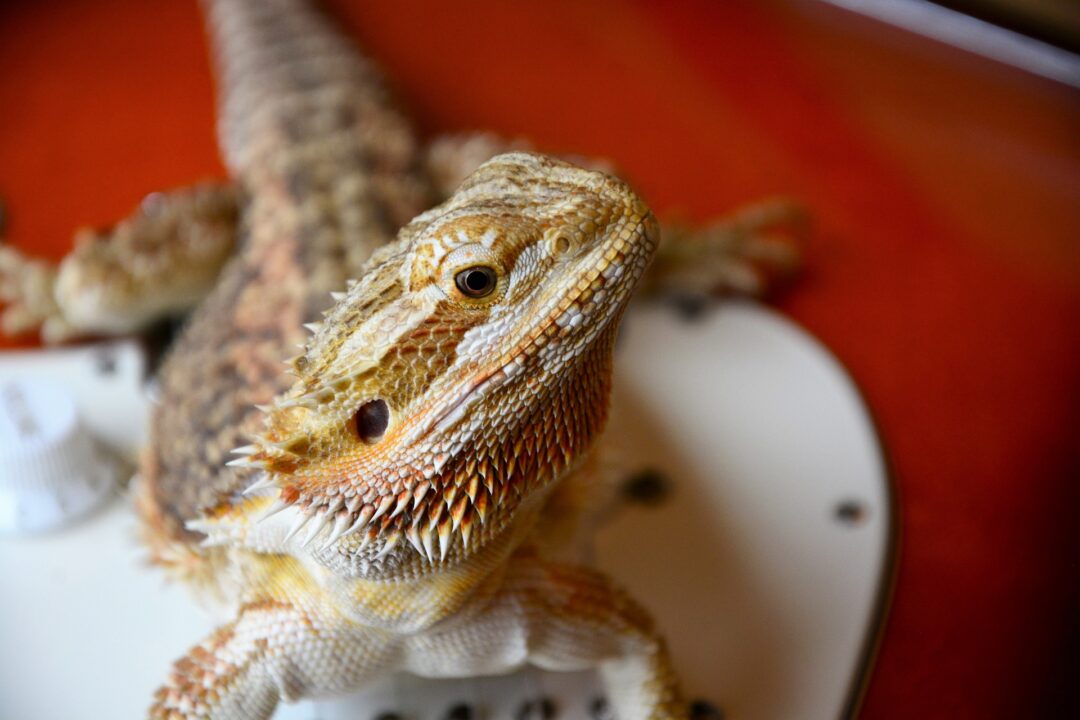Bearded dragons are fascinating creatures that are popular pets around the world.
These lizards are known for their unique appearance, calm demeanor, and easy-to-care-for nature.
One aspect of bearded dragon care that often raises questions is their bowel movements.
Many pet owners wonder how long can a bearded dragon go without pooping? This article will explore this topic in-depth and provide the information you need to care for your bearded dragon properly.
The Importance of Understanding Your Bearded Dragon’s Digestive System
Before we dive into the question of how long a bearded dragon can go without pooping, it’s essential to understand how its digestive system works.
Bearded dragons are omnivores, which means they eat plant and animal-based foods. Their diet consists of insects, vegetables, and occasionally small rodents in the wild.
A bearded dragon’s digestive system is similar to a human’s, with a mouth, esophagus, stomach, small intestine, and large intestine.
When a bearded dragon eats, food travels through its digestive system, and nutrients are absorbed along the way. Waste products are eliminated through the cloaca, which is an opening at the base of the tail.
How Long Can a Bearded Dragon Go Without Pooping?
Bearded dragons typically poop once every day or two.
However, it is common for them to skip a day or two occasionally.
If a bearded dragon has not defecated in a week, it may be a sign of constipation or impaction, which can be a serious health issue for the animal.
To help your bearded dragon have a bowel movement, you can try the following.
Ensure they have access to fresh water at all times. Dehydration can contribute to constipation.
Offer them a warm bath for 15-20 minutes. It can help to stimulate their digestive system and encourage bowel movement.
Make sure their enclosure is at the appropriate temperature. Bearded dragons require a basking spot of 95-110°F and a cooler side of 75-85°F to digest their food properly.
Offer them a variety of vegetables and fruits, as a diet too high in protein can contribute to constipation.
Suppose your bearded dragon still has not defecated after trying these methods.
In that case, it is recommended to seek veterinary care as soon as possible, as constipation and impaction can become serious health issues.
What Happens if a Bearded Dragon Doesn’t Poop?

If a bearded dragon goes too long without pooping, it can lead to serious health problems.
The buildup of waste in the intestines can cause impaction, which is a blockage that prevents the bearded dragon from pooping.
Impaction can be life-threatening and requires immediate veterinary care.
Signs of impaction include a lack of appetite, lethargy, and a swollen or firm abdomen. If you notice these symptoms, you must seek veterinary care immediately.
Factors that Affect a Bearded Dragon’s Poop Schedule
Several factors can affect how often a bearded dragon poops.
Temperature and Humidity
Bearded dragons require a specific temperature and humidity range to digest their food properly.
If the temperature or humidity is too low, it can slow down their digestive system and lead to constipation.
Diet
Bearded dragons require a balanced diet of vegetables and insects. If they’re not getting enough fiber in their diet, it can lead to constipation.
Hydration
Bearded dragons need access to clean water at all times. If they’re dehydrated, it can lead to constipation.
Stress
Bearded dragons are sensitive creatures and can experience stress from various factors, including changes in their environment, handling, or other pets in the home.
Stress can affect bowel movements and lead to constipation.
Conclusion
In conclusion, bearded dragons typically poop once every day or two. However, several factors can affect their poop schedule, and monitoring their bowel movements for any changes is essential.
If your bearded dragon hasn’t pooped in several days, it could be a sign of an underlying health issue, and you should seek veterinary care.
Related Articles:

